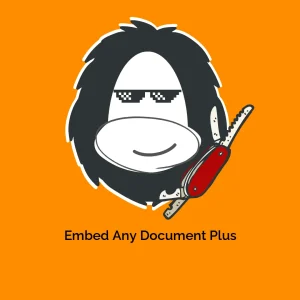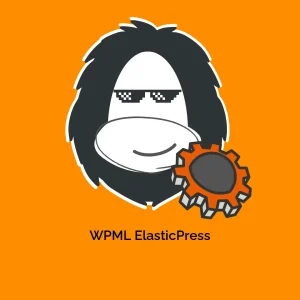Understanding Custom Hooks for WordPress
When it comes to customizing WordPress sites, leveraging custom hooks is essential. Custom hooks provide developers with powerful tools for modifying and extending the functionality of their sites without directly altering the theme code. Instead of wrestling with various file structures and worrying about updates, utilizing custom hooks can streamline the process of coding and implementing features.
The Limitations of Functions.php
Traditionally, WordPress developers have added custom code in the functions.php file of their themes. While this is a common method, it comes with several significant drawbacks:
-
Risk of Site Crashes: Any error in the
functions.phpcode can lead to a complete site crash. Recovering from this usually requires a manual fix via FTP access, which may not be straightforward for all users. -
Theme Switching Problems: When switching themes, any custom code in the
functions.phpfile becomes obsolete. Developers are left with the task of transferring code snippets manually to the new theme, which can be tedious and error-prone. -
Loss of Code with Theme Updates: If a theme is updated and the user isn’t utilizing a child theme, custom code can be lost entirely. This is especially frustrating when significant custom work has been invested.
Given these challenges, an innovative solution is the Custom Hooks add-on, which conveniently circumvents the limitations tied to using functions.php.
The Advantages of Using Custom Hooks
When you opt for the Custom Hooks add-on, numerous benefits arise:
-
Centralized Custom Code: All custom code gets collected in one location instead of being dispersed among theme files. This means easier management and troubleshooting, as everything is located neatly in the Custom Hooks plugin.
-
Simplified Testing: The plugin provides an option to deactivate all customizations quickly. If something goes wrong, rather than digging through files, deactivating the Custom Hooks add-on can restore the default behavior of the website.
-
Protection from Overwrites: Unlike themes or certain plugins, the Custom Hooks add-on is not subject to updates, ensuring that any custom PHP snippets remain intact.
-
Prevention of Fatal Errors: If a custom code snippet contains an error that normally might cause a fatal site error, WordPress will deactivate the Custom Hooks add-on rather than crash the entire site. This safety feature is essential for maintaining uptime and accessibility for users.
Implementing Custom Hooks Add-on
Getting started with the Custom Hooks add-on is straightforward:
-
Download the Add-on: Access your account page and download the Custom Hooks add-on.
-
Upload and Activate: Upload the plugin to the
wp-content/pluginsdirectory of your WordPress site and activate it from the dashboard. -
Navigating the Plugin File Editor: Go to the dashboard, then to Plugins > Plugin File Editor. From the dropdown menu above the code editor, select “Custom Hooks” and click “Select”.
-
Adding Custom Code: You can now paste your custom PHP code into the
custom-hooks.phpfile and click “Update File”. For added safety, downloading a backup of this file periodically is a savvy practice.
For those who prefer not to use the built-in Plugin File Editor, manual FTP access can achieve the same outcomes. Simply paste your code into the file located at plugins/custom-hooks/custom-hooks.php and upload.
Adding PHP Code Using Custom Hooks
The landscape of custom hooks is primarily built on PHP, the backbone of WordPress. Here’s a simple method for adding custom PHP code:
php
add_action('wp_head', function() {
// Your custom PHP code here
}, 100);
The example above shows how to hook into the wp_head action to add code that can run during the WordPress rendering process. This method allows developers to include additional functionalities or modify existing features seamlessly.
For cases where you need your JavaScript to execute before the body closes, you can opt for the wp_footer hook:
php
add_action('wp_footer', function() {
// Your custom footer code here
}, 100);
Incorporating JavaScript and CSS
In addition to custom PHP, JavaScript and CSS play critical roles in enhancing site interactivity and design.
JavaScript Integration
To add custom JavaScript, there are a couple of routes. The simplest method is to include it in your main theme’s linked JavaScript file. Here’s how to do this with the wp_head hook:
php
add_action('wp_head', function() {
?>
<script>
// Your custom JavaScript code
</script>
<?php
}, 100);
If you prefer the script to load in the footer, simply replace wp_head with wp_footer.
CSS Customizations
For CSS, you can add code directly into your child theme’s style.css file:
css
.facets {
font-size: 16px;
color: #333;
}
Alternatively, include it in the wp_head section similarly to JavaScript:
php
add_action('wp_head', function() {
?>
<style>
/* Your custom CSS code */
.facetwp-counter {
font-size: 14px;
font-style: italic;
color: #888;
}
</style>
<?php
}, 100);
Taking these extra steps helps ensure that your styles and scripts are efficiently loaded and can be fine-tuned without directly affecting theme files.
Enabling Theme and Plugin File Editor
If you need to access the Theme or Plugin File Editor but cannot find it in your WordPress dashboard, enabling it in the wp-config.php file is quite simple. Just locate the line that says:
php
define('DISALLOW_FILE_EDIT', true);
Change it to:
php
define('DISALLOW_FILE_EDIT', false);
This action allows you to active the File Editor while maintaining safe customization practices.
In summary, using Custom Hooks brings significant advantages when managing and customizing WordPress sites. It shields against the pitfalls associated with the functions.php file while providing a centralized solution for all custom code. By employing Custom Hooks, developers can create robust, maintainable, and update-proof WordPress sites that are free of the hassle and anxiety that come from traditional coding practices. Embracing Custom Hooks ultimately leads to a smoother development experience and enhances the overall website performance.
Custom Hooks: Download for Free on OrangoGPL
Certainly, downloading Custom Hooks for Free on OrangoGPL is feasible and one hundred percent legal.
Truly, even downloading a cracked Custom Hooks is law-abiding, as the license it is distributed under is the General Public License, and this license permits anyone its modification for free.
So, you can be calm: If you want to buy Custom Hooks cheaply or, directly, to download Custom Hooks Plugins nulled and, so, obtain it 100% free, now, you can do it without breaking the law.
Custom Hooks GPL: The solution for beginner entrepreneurs
It’s irrelevant what you call it: Discounts for Custom Hooks, download Custom Hooks Plugins GPL, download Custom Hooks without license or download Custom Hooks nulled.
It is something perfectly within the law and something essential for every new entrepreneur.





Reviews
There are no reviews yet.